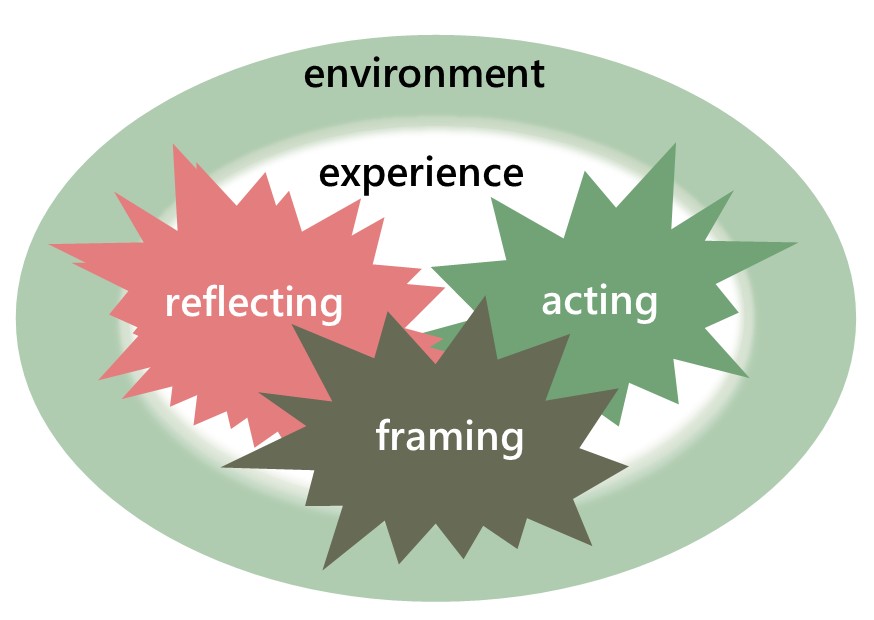Learning, a cornerstone of education, has evolved into a multifaceted concept. This article delves into the core of “What Is Learning Concept,” exploring its dual nature as both a product and a process. We’ll examine various perspectives on learning, drawing on influential theories and research to provide a comprehensive understanding.
Defining learning solely as a change in behavior, as proposed by some psychological perspectives, overlooks its complexity. While behavior change can be an indicator, learning encompasses internal mental processes, knowledge acquisition, and the development of understanding. It’s a dynamic interaction between experience and cognitive structuring.
Learning as a Product: Outcomes and Taxonomies
Learning as a product emphasizes the outcomes of the learning process. This approach allows for the categorization and measurement of acquired knowledge, skills, and attitudes. Bloom’s Taxonomy, a widely recognized framework, categorizes learning objectives into three domains:
- Cognitive: Mental skills (knowledge) categorized into remembering, understanding, applying, analyzing, evaluating, and creating. Further categorized by the type of knowledge: factual, conceptual, procedural, and metacognitive.
- Affective: Growth in feelings or emotional areas (attitude) ranging from receiving and responding to ideas to internalizing values and acting consistently with them.
- Psychomotor: Manual or physical skills with levels ranging from observation and imitation to adaptation and origination of new movements.
These taxonomies provide a structured approach to defining learning objectives and assessing educational achievements, focusing on the tangible results of the learning process. However, focusing solely on the product risks overlooking the dynamic journey of learning.
Learning as a Process: Experiential and Reflective
Learning as a process highlights the ongoing journey of acquiring knowledge and understanding. Kolb’s experiential learning model emphasizes a cyclical process involving concrete experience, observation and reflection, abstract conceptualization, and testing in new situations. This continuous spiral allows learners to build upon prior experiences and adapt to new challenges.
 Kolb Learning Cycle
Kolb Learning Cycle
John Dewey’s work on reflective thinking further enriches the understanding of learning as a process. He posits that learning occurs when individuals encounter challenges to their habitual experiences, leading to a process of questioning, exploring, and reconstructing knowledge. This active engagement with experience, facilitated by reflection and the making of connections, fosters deeper understanding. This process is further influenced by the social context of learning, emphasizing the role of interaction and observation of others. Learning, therefore, is not solely an individual pursuit but a social endeavor shaped by cultural and environmental factors.
Consciousness of Learning: Acquisition vs. Formalized
Alan Rogers introduces the concept of consciousness in learning, distinguishing between task-conscious (acquisition) and learning-conscious (formalized) learning. Acquisition learning occurs implicitly through everyday experiences, while formalized learning involves intentional, guided instruction. Both types contribute to overall learning, existing on a continuum from unintentional to highly structured learning experiences.
Learning Theories: A Multifaceted Perspective
Various learning theories offer different lenses through which to understand the learning process. Behaviorism focuses on observable behaviors, while cognitivism emphasizes internal mental processes. Humanism stresses personal growth and self-actualization, whereas social cognitive theory highlights the role of social interaction. Constructivism posits that learners actively construct knowledge through experience. These diverse perspectives contribute to a more holistic understanding of “what is learning concept.” Each theory offers valuable insights into how learning occurs and can inform educational practices.
Conclusion: Embracing the Complexity of Learning
The “learning concept” encompasses both the tangible outcomes and the dynamic processes involved in acquiring knowledge, skills, and understanding. By recognizing learning as both product and process, and acknowledging the influence of consciousness and various learning theories, we can foster more effective and meaningful learning experiences. A comprehensive understanding of learning requires embracing its complexity and recognizing the interplay of individual, social, and environmental factors.